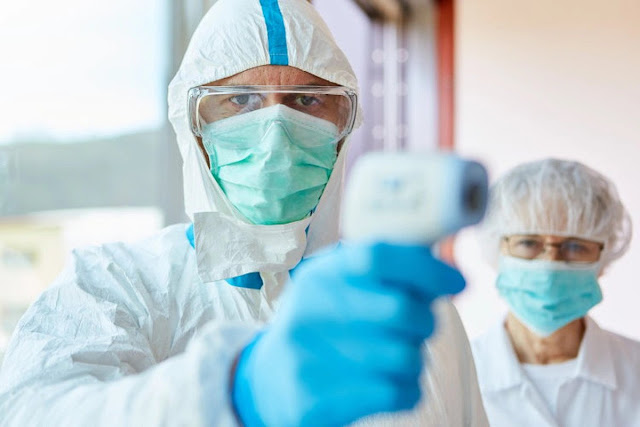As our nation battles an invisible, deadly enemy, we continue to send our frontline warriors into danger without sufficient armor.
Our military does not send troops into battle without the equipment they need to stay safe. And as a former volunteer firefighter, I would never have been required to respond to a fire without the proper gear.
Yet this is what we are asking of our nurses, other health care workers, and first responders when they lack the PPE–personal protective equipment–-they need. And this is occurring as the number of COVID-19 cases continues to grow unabated, and the number of N95 respirators and other emergency supplies available through the Strategic National Stockpile is running out.
ANA’s Survey on Access To PPE
On March 20, the American Nurses Association began a survey of nurses nationwide about their access to PPE and other work environment concerns. According to findings from more than 20,000 respondents:
◉ 76% reported being extremely concerned about PPE,
◉ 66% reported being out or short of N95 respirators,
◉ 62% were out or short of full-face shields, and 61 percent were out or short of surgical masks.
◉ 69% reported concerns about working short-staffed.
Further, we hear disturbing reports that employers have retaliated against nurses and other health care workers for raising legitimate concerns about their personal safety and the safety of patients.
Protecting Nurses Safeguards The Public
Protecting the safety and health of nurses and other frontline workers is directly related to safeguarding the public and stemming the spread and impact of the virus.
Without the right PPE, nurses are concerned about unintentionally transmitting the virus to patients under their care, or to those in their communities.
According to our survey, 85% also worry about keeping their families safe from becoming infected.
There are countless stories from nurses and other health care workers who go to great lengths to prevent potentially contaminating their family members. For example, many have an elaborate system in place to shed their work clothes before stepping into their homes. They also describe isolating themselves as much as possible from their children and other family members – a state of affairs that’s causing great anguish to many. At this point, we can’t even measure the toll the pandemic will take on the mental health of nurses in the long term.
There are no definitive numbers on how many health care workers have been infected in the United States, although at least 15 nurses have died. According to an April 3 article in U.S. News and World Report,
◉ 4.4% of health care workers in Pennsylvania had COVID-19,
◉ 10.6% of Oklahoma’s coronavirus patients were identified as working in health care,
◉ Alarmingly, about 20% of cases in Ohio are among health care workers.
In cities such as New York and Boston, we hear about hundreds of health care workers who are COVID positive and in quarantine, depleting the already stretched ranks on the frontlines.
Looking globally, the International Council of Nurses shared with BBC World News that the infection rate among health care workers in Italy was about 9 percent, and in Spain, reportedly 12 percent, further adding to the staffing crisis in hospitals.
Nurses are waiting for more protective gear to arrive.
President Trump signed legislation that allocates funds aimed at bolstering public health efforts and supplies. He has ordered one manufacturer, so far, to ramp up its production of N95 respirators. However, it will take time for that company to retool its shop and begin the production necessary to meet this challenge.
Although it is encouraging to hear federal officials share details about the procurement and delivery of PPE and other medical equipment, we are still hearing that sufficient supplies of PPE are not getting to those who most desperately need them to take care of patients and themselves. The report from the U.S. Department of Health and Human Services' Office of Inspector General of survey findings from 323 hospitals reinforces what we are hearing about PPE, including the lack of a robust supply chain, problems with the amount and quality of supplies coming from the Strategic National Stockpile, as well as challenges related to changing guidance from the Centers for Disease Control and Prevention and conflicting guidance from federal, state and local authorities.
As we head into what is predicted to be the most difficult and deadly weeks yet in this country, our plea is urgent. Our courageous nurses are working around the clock under battlefield conditions to care for the sick and dying, putting their own health and safety at risk. It is both a moral and strategic imperative for our nation’s leaders to do everything possible to arm and protect nurses and other critical responders.
Source: nurse.org







0 comments:
Post a Comment